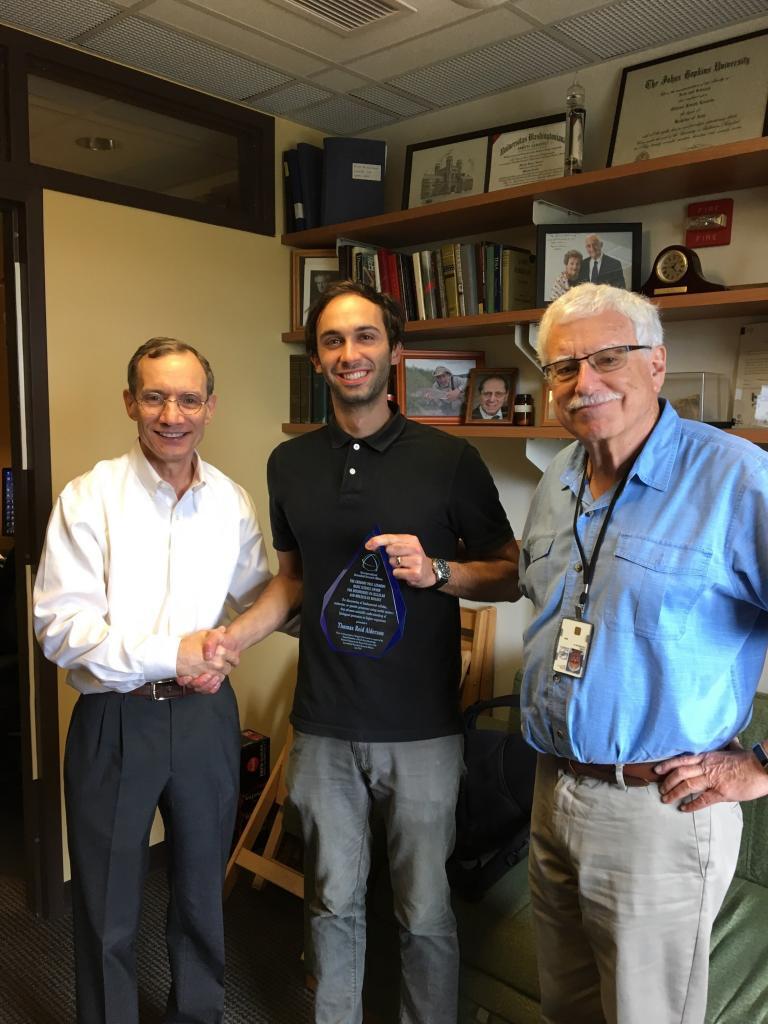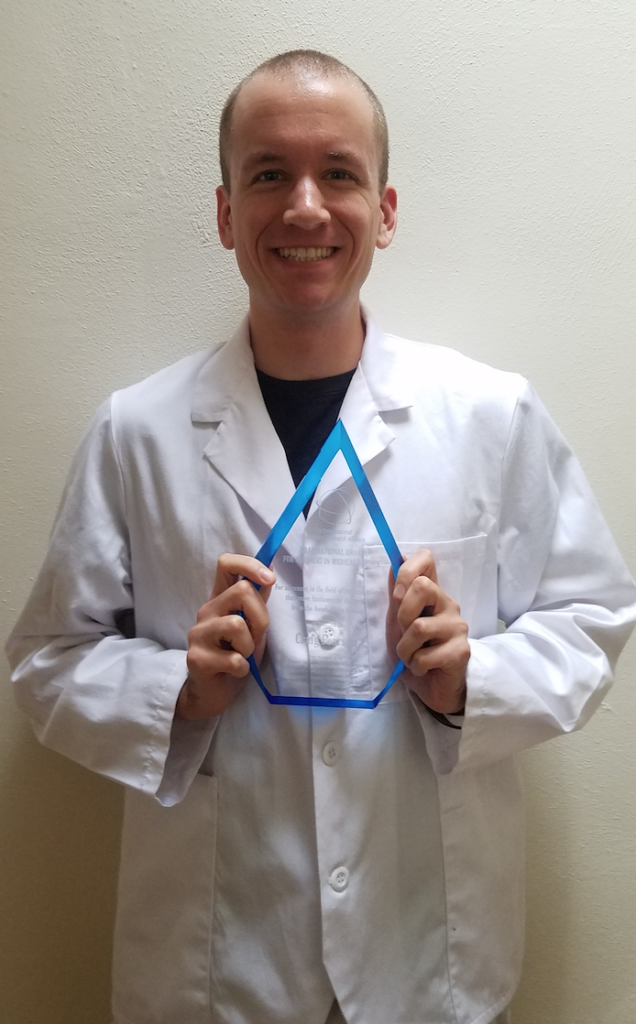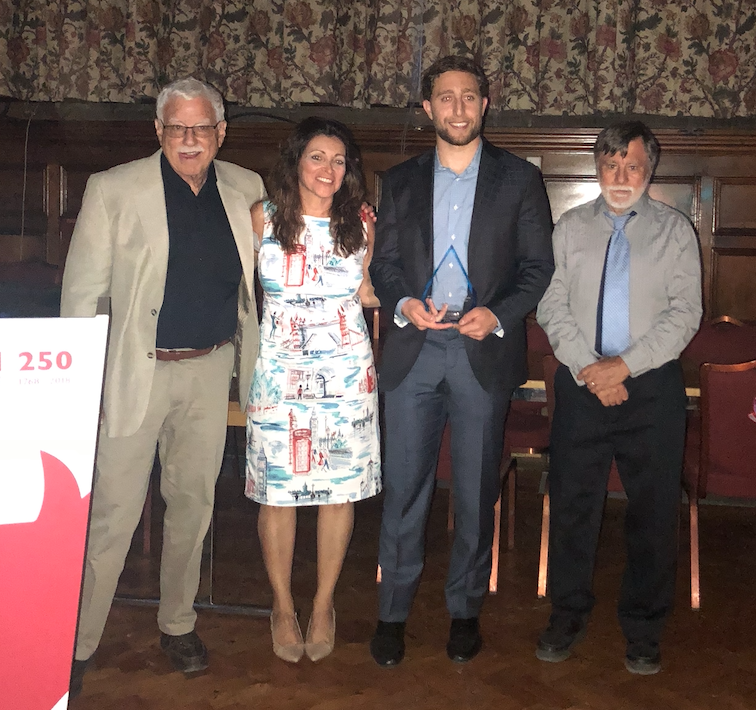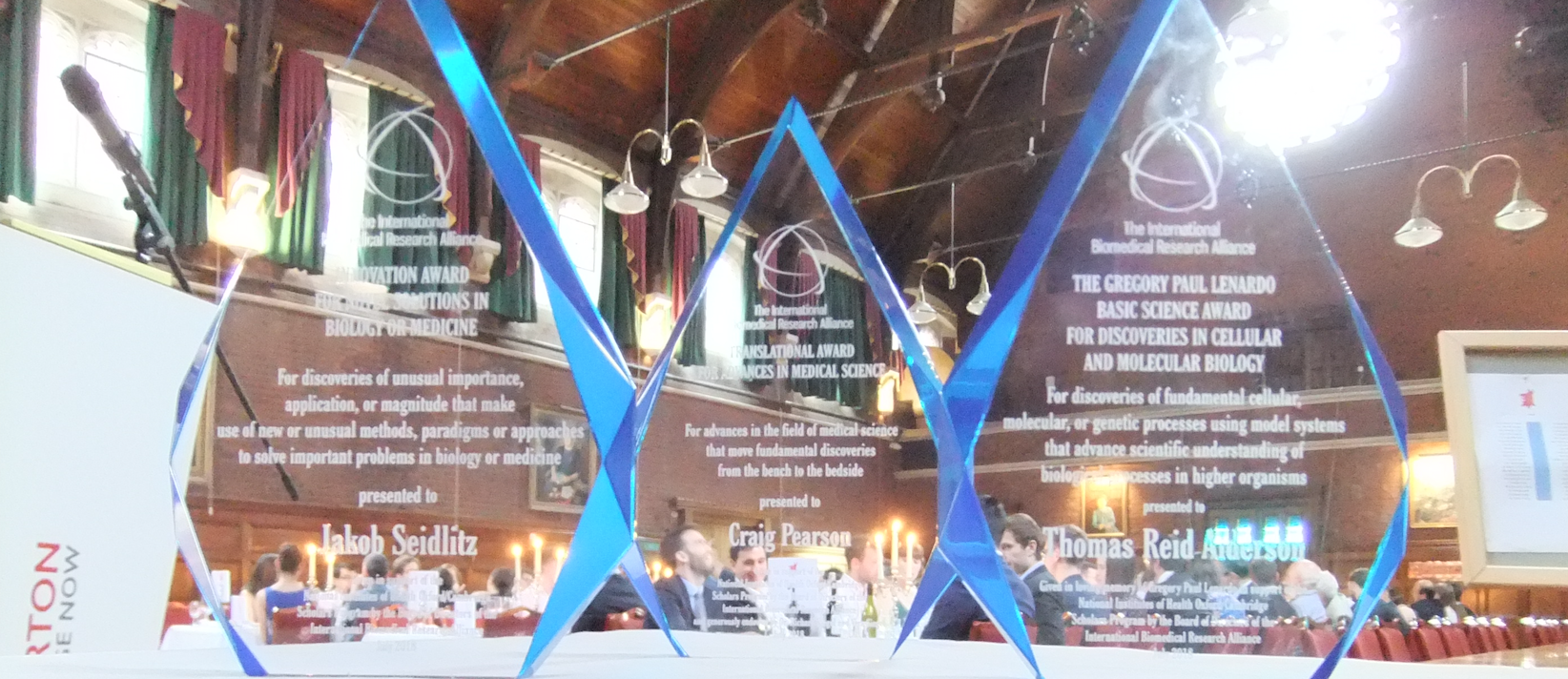NIH Oxford-Cambridge Scholars and alumni have been named winners of some of the most prestigious prizes in 2018. Among these awards are several that recognize current scholars for their work in three categories; Basic Science, Translational, and Innovation.
Since 2013, the Board of Directors of the International Biomedical Research Alliance have distinguished scholars in the program with scientific awards that recognize their dedication, hard work, and merit. Traditionally, these awards have been given at the NIH Global Doctoral Partnerships Annual Scientific Research Workshop, which rotates between the NIH, Cambridge, and Oxford. Since the 2018 Workshop was held at Homerton College, at the University of Cambridge in the UK from July 16-19, 2018, the awards were presented at the formal dinner there.
The NIH Oxford-Cambridge Scholars Program conducts an in-depth yearly review of the progress of all scholars in the program. During the review, the NIH Scientific Directors, led by Academic Dean Dr. Jim Sellers, assess the progress and scientific accomplishments of the scholars from each class year. Scholars in their third and fourth years in the program with significant research accomplishments were selected for award consideration. The chosen scholars’ accomplishments included the publication of first-author papers with significant findings and presentations made at conferences. Prizes are awarded in three categories: Basic Science, Translational, and Innovation and consist of an engraved statuette and a modest monetary prize.
The Gregory Paul Lenardo Basic Science Award, was graciously endowed by NIH OxCam Co-Founder Dr. Michael Lenardo in loving memory of his brother. It recognizes discoveries of fundamental cellular, molecular, or genetic processes using model systems that advance scientific understanding of biological processes in higher organisms and was presented to NIH-Oxford Scholar Reid Alderson. Reid recently graduated and is moving to Canada to pursue a postdoc with Lewis Kay. His research focused on two fundamental aspects in biochemistry: understanding the molecular mechanisms of protein folding and the function and dysfunction of molecular chaperones, a class of proteins that help other proteins fold into their specific three-dimensional structures. These studies have been featured in journals such as Nature, Proceedings of the National Academy of Sciences, Journal of the American Chemical Society, and Nature Communications, among others, and highlighted in the magazine Chemical & Engineering News and endorsed by the website F1000 Prime.

The Translational Award for advances in the field of medical science that move fundamental discoveries from the bench to the bedside have been awarded to NIH-Cambridge Scholar Craig Pearson. This year marks the beginning of this award being endowed by Dr. Richard and Vera Siegel. Dr. Siegel founded the MD/PhD Partnership Training Program and he has served as a mentor and senior advisor to the program for many years. Craig’s research focused on the influence of extracellular matrix proteins on regeneration of retinal ganglion cell axons in the optic nerve. Craig co-founded the Peter Watson International Scholarship with a Cambridge colleague to support young scientists and awarded two winners a week-long trip to the NIH, where they visited laboratories, toured Capitol Hill, and presented their work. He has recently and successfully defended his thesis and is pursuing a medical degree at Washington University in St. Louis.

The Innovation Award For Novel Solutions in Biology or Medicine for discoveries of unusual importance, application, or magnitude that make use of new or unusual methods, paradigms or approaches to solve important problems in biology or medicine was presented to NIH-Oxford Scholar Jakob Seidlitz. Jacob’s work focuses on adolescence — a time of major physical, chemical, and biological changes, as well as a common period of onset for various brain-related disorders. It is crucial to develop methods that help achieve a full understanding of normative neurodevelopment, allowing better characterization of aberrant neurodevelopment. His work is focused on providing such an understanding through the use of brain networks generated from multimodal neuroimaging. He is looking at new ways to integrate multiple MRI contrasts in order to create a brain network “fingerprint” for an individual. In theory, these methods will be more robust to capturing an individual’s neurobiological profile, and thus more sensitive to inter-individual differences in behavior, cognition, and psychopathology.

We wish The International Biomedical Research Alliance 2018 Scientific Research Awards winners, and all of our scholars and alumni best wishes for continued success in the new year!

